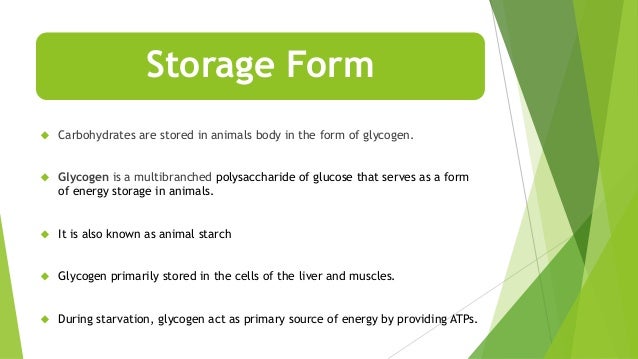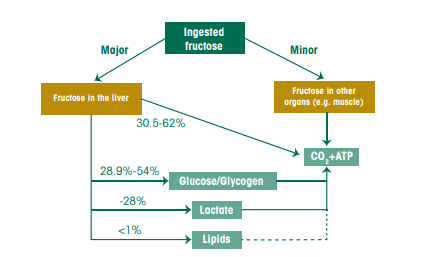Unggulan
- Dapatkan link
- X
- Aplikasi Lainnya
Carbohydrates Are Stored In Fhe Kiver And Musc In The Form Of - Muscle Energy Systems Mobility Health : The carbohydrates are stored in the form of fats when the muscles and liver are full.
Carbohydrates Are Stored In Fhe Kiver And Musc In The Form Of - Muscle Energy Systems Mobility Health : The carbohydrates are stored in the form of fats when the muscles and liver are full.. Exercise, diet and body weight influence glycogen storage, so trained athletes may have up to 700 grams of glycogen stored in their muscles, according to the december 2015 issue of. That is why consuming slow digesting carbohydrates is so important. These molecules are transported through your digestive system and then converted into glucose by the liver to make a usable form of energy for the brain and your muscles. 6% is stored in the blood. G6p is further metabolized into triglycerides, fatty acids, glycogen or energy.
It is sensible to do liver detox as preventive evaluate. When we consume carbohydrate giving foods, the food is broken down into molecular form of sugar and the sugar is turned into glucose by liver. Storage form of glucose in humans & animals; Carbohydrates are stored in the liver and muscles in the form of a.glucose. Carbohydrates consist of sugars and polymers of sugar.

The glucose is converted into glycogen for long term storage in our body.
Carbohydrates consist of sugars and polymers of sugar. Fatty acids, stored as triglycerides in an organism, are an important source of energy because they are both reduced and anhydrous.the energy yield from a gram of fatty acids is approximately 9 kcal (37 kj), compared to 4 kcal (17 kj) for carbohydrates. Also, exercise burns through glycogen so fast, it is necessary to not train on an empty stomach. Exercise, diet and body weight influence glycogen storage, so trained athletes may have up to 700 grams of glycogen stored in their muscles, according to the december 2015 issue of. A little is converted into glycogen, which is stored in the liver, this during fasting will last your less than 24 hours, often 12 hours, less if you exercise the rest is converted into fat (triglycerides) For example, in plants carbohydrates are generally stored. Carbohydrates are central to many essential metabolic pathways. The muscles also store glycogen. 6% is stored in the blood. The liver and muscles store carbohydrates in the form of a. Stored in the liver and muscle tissue. Carbohydrates are stored in organisms in the form of complex molecules which may be hydrolysed when needed to yield energy for metabolism. They serve as stored fuel and structural material.
Muscles throughout the body can store a total of about 300 grams of fat and 350 grams of glycogen. 80% is stored in the muscle tissue; Answer to carbohydrates are stored in the liver and muscles in the form ofa. Your liver is another organ where carbohydrates are stored for later use. Digestion and absorption of carbohydrates your diet consists of simple and complex carbohydrates.

6% is stored in the blood.
Dietary carbohydrates provide glucose that body cells can use for energy. Plants synthesize carbohydrates from carbon dioxide and water through photosynthesis, allowing them to store energy absorbed from the sunlight internally. Carbohydrates are stored in the body in the form of glucose or glycogen. For example, in plants carbohydrates are generally stored. The liver can only store about 100 g of glucose in the form of glycogen. The active form, retinol, is converted to this by lecithin:retinol acyltransferase. 6% is stored in the blood. Excess of carbohydrates are stored in the liver and muscles in the form of gluco se. Excess glucose beyond what the body needs for immediate energy is converted into glycogen, a storage form of carbohydrate, or converted into fat and stored in body fat cells. Glycogen is the form in which the body stores glucose. Vitamin a is stored within stellate cells in the liver as retinyl ester. The glucose is converted into glycogen for long term storage in our body. They serve as stored fuel and structural material.
Dietary fats stored in muscles stay in the form of triglycerides. Exercise, diet and body weight influence glycogen storage, so trained athletes may have up to 700 grams of glycogen stored in their muscles, according to the december 2015 issue of. Your liver is another organ where carbohydrates are stored for later use. G6p is further metabolized into triglycerides, fatty acids, glycogen or energy. The active form, retinol, is converted to this by lecithin:retinol acyltransferase.

They are organic compounds made of carbon, hydrogen, and oxygen atoms in the proportion of 1:2:1
Glycogen stores are used as an energy source. The liver can only store about 100 g of glucose in the form of glycogen. Digestion and absorption of carbohydrates your diet consists of simple and complex carbohydrates. Glucose is transported by the blood to the various tissues and organs where it is used as energy. Excess glucose beyond what the body needs for immediate energy is converted into glycogen, a storage form of carbohydrate, or converted into fat and stored in body fat cells. Excess of carbohydrates are stored in the liver and muscles in the form of gluco se. According to iowa state university, 90 to 110 grams of glycogen can be stored in a healthy adult's liver. Fatty acids, stored as triglycerides in an organism, are an important source of energy because they are both reduced and anhydrous.the energy yield from a gram of fatty acids is approximately 9 kcal (37 kj), compared to 4 kcal (17 kj) for carbohydrates. 1 answer to carbohydrates are stored in the liver and muscles in the form of a. Carbohydrate metabolism is the whole of the biochemical processes responsible for the metabolic formation, breakdown, and interconversion of carbohydrates in living organisms. Stored in the liver and muscle tissue. Carbohydrates are stored in the liver and muscles in the form of a. Dietary fats stored in muscles stay in the form of triglycerides.
- Dapatkan link
- X
- Aplikasi Lainnya
Postingan Populer
Japan Junior Idol / Japanese Junior Idol U15 Maria - Foto : Junior idol interview vol.02 riho kishinami/vol.03 朝倉みかん→ sm3231847.
- Dapatkan link
- X
- Aplikasi Lainnya
Andai Saja Kakakku Tidak Menggodaku - VIRAL ANDAI SAJA AKU TIDAK MENGANGKAT KANTUNG ITU - YouTube : Lalu dikarenakan kurang kokohnya iman si perempuan, dia akhirnya tergoda dengan raut muka.
- Dapatkan link
- X
- Aplikasi Lainnya


Komentar
Posting Komentar